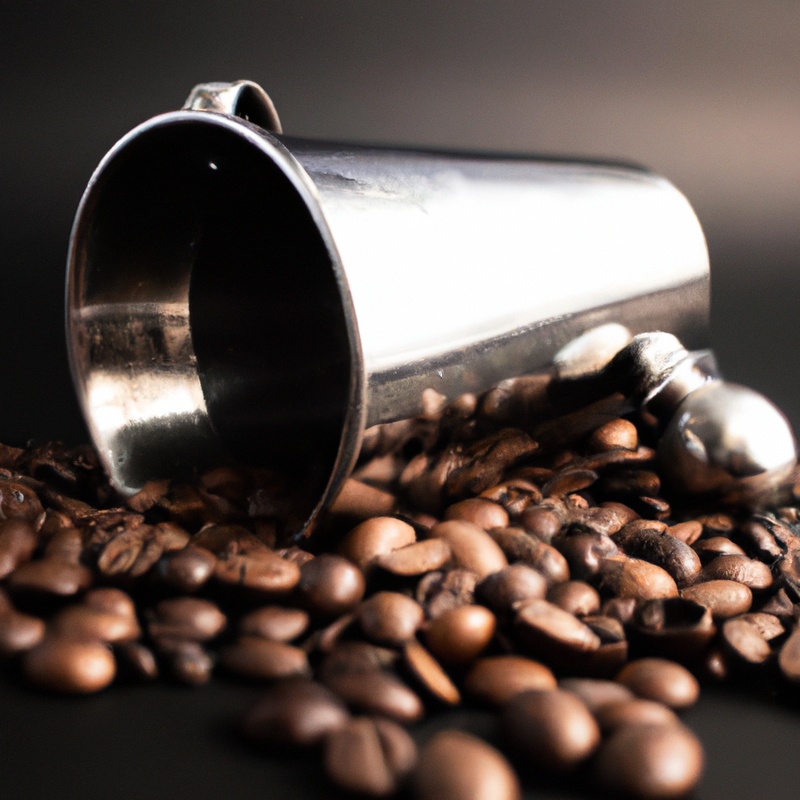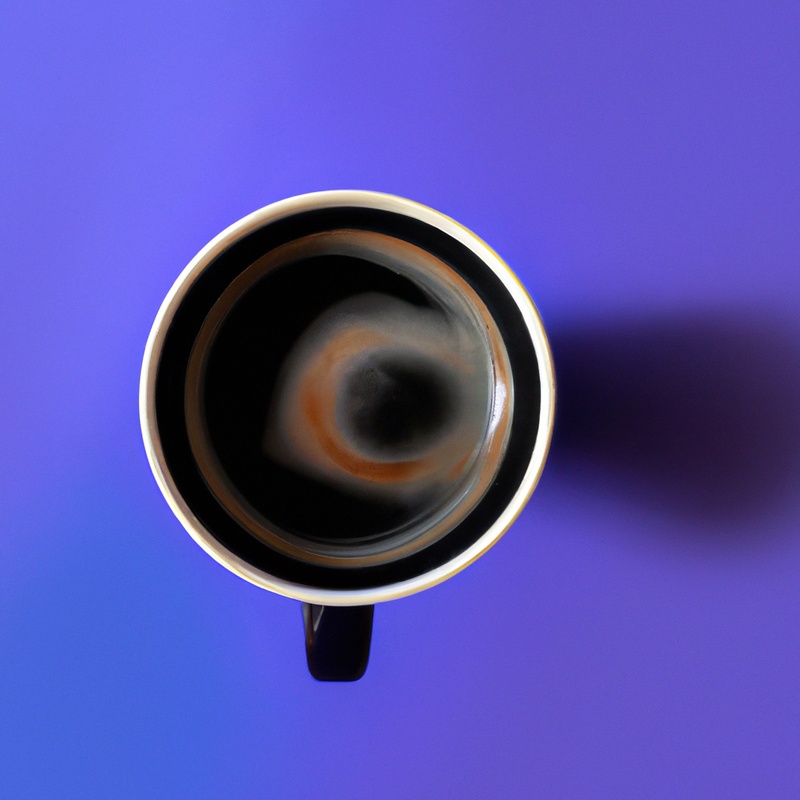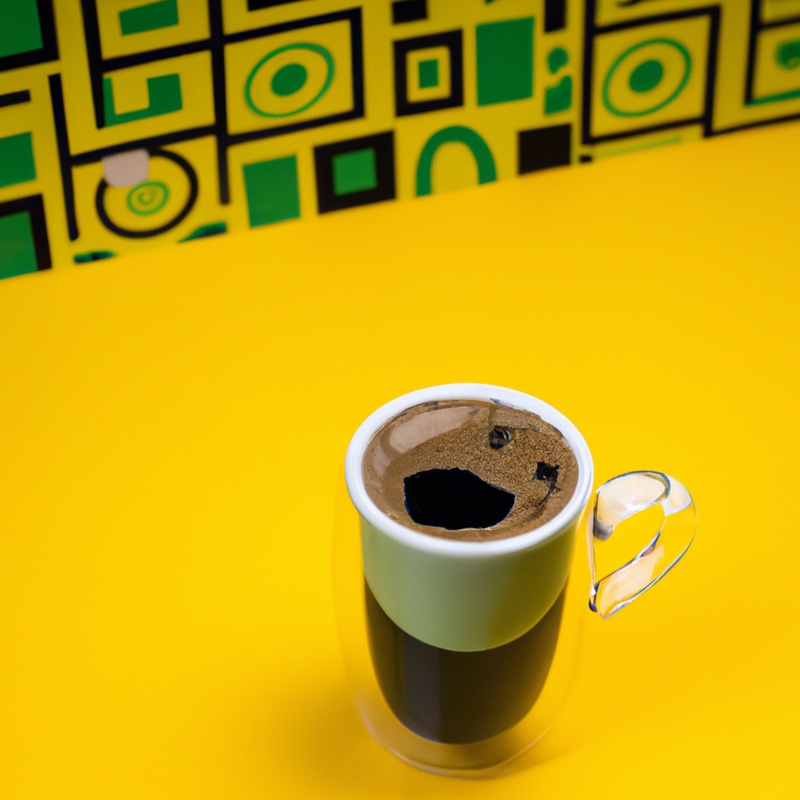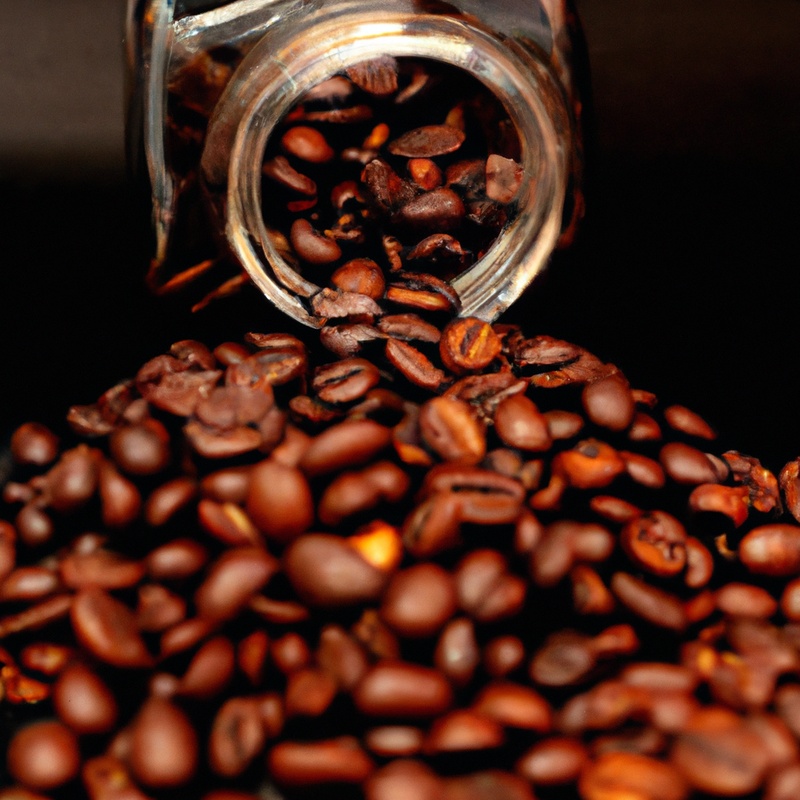Key Takeaways:
- Cold brew coffee typically contains more caffeine than regular hot brewed coffee.
- The extended steeping process of cold brew allows for a higher caffeine extraction.
- The caffeine content of cold brew can vary depending on the ratio of coffee grounds to water used.
- Despite having more caffeine, cold brew is often perceived as less bitter and smoother than hot brewed coffee.
Are you looking for a refreshing jolt of caffeine to start your day?
If so, you may be wondering if cold brew coffee has more caffeine than its traditional counterpart.
Well, you’ve come to the right place! In this article, we’re going to explore the world of cold brew coffee and its caffeine content.
We’ll dive into the key differences between cold brew and traditional coffee, examine how caffeine is measured, and uncover factors that affect the caffeine levels in your cup of Joe.
So grab a mug and get ready to discover the truth about cold brew coffee and its caffeine kick!
| Comparison | Cold Brew Coffee | Regular Coffee |
|---|---|---|
| Caffeine Content | Varies, but generally has less caffeine | Varies, but generally has more caffeine |
| Preparation | Coffee grounds are steeped in cold water for 12-24 hours | Hot water is poured over coffee grounds and brewed immediately |
| Flavor Profile | Generally less acidic and smoother | Can be more acidic and bitter |
| Serving Temperature | Served over ice or chilled | Served hot |
| Health Benefits | May contain lower levels of certain compounds that can cause stomach irritation | May contain higher levels of antioxidants |
What is Cold Brew Coffee?
Cold brew coffee is a brewing method that involves steeping coffee grounds in cold water for an extended period of time, resulting in a smoother, less acidic taste compared to traditional hot brewed coffee.
Cold Brew Coffee vs. Traditional Coffee: Key Differences
Cold brew coffee differs from traditional coffee in several key aspects. Firstly, the brewing process: cold brew is made by steeping coffee grounds in cold water for an extended period, usually 12-24 hours, while traditional coffee is brewed with hot water in a shorter time.
Secondly, the flavor profile: cold brew tends to have a smoother and less acidic taste compared to traditional coffee.
Lastly, the caffeine content: cold brew typically contains less caffeine than traditional coffee due to the longer steeping time, but it still provides a sufficient energy boost. So, if you’re looking for a less acidic and milder option with a slightly lower caffeine kick, cold brew might be your go-to choice.

Understanding Caffeine in Coffee
Caffeine content in coffee can vary significantly and understanding how it is measured can help you make informed choices. Different factors can affect the amount of caffeine in your cup of coffee.
How is Caffeine Measured?
Caffeine content in coffee is measured through laboratory methods.
The most common method is high-performance liquid chromatography (HPLC).
The ground coffee is mixed with a solvent and analyzed using a specialized machine.
Another technique is spectrophotometry, where caffeine absorbs light at a specific wavelength.
These methods determine the exact amount of caffeine in a sample.
It’s important to note that factors like brewing time, coffee variety, and roast level can affect caffeine levels.

Factors Affecting Caffeine Content in Coffee
The caffeine content in coffee can be influenced by various factors.
The type of coffee bean used, with robusta beans containing more caffeine than arabica.
The roast level also matters, with lighter roasts typically having slightly more caffeine.
Brewing methods can have a significant impact too.
Espresso tends to have more caffeine per ounce than drip coffee, while cold brew is known for its lower caffeine content.
Lastly, the strength of your brew and the brewing time can affect the caffeine concentration.
So, choose your beans, roast level, brewing method, brew strength, and brewing time carefully to control your caffeine intake.

Does Cold Brew Coffee Have More Caffeine?
Let’s dive into the caffeine content of cold brew coffee and find out if it packs a bigger punch than its traditional counterpart.
Exploring the Caffeine Content in Cold Brew Coffee
Cold brew coffee generally contains more caffeine than regular hot brewed coffee.
This is because the brewing process for cold brew involves a longer steeping time, resulting in a higher caffeine extraction.
However, it’s important to note that the caffeine content can vary depending on the type of coffee beans used and the strength of the brew.
If you’re looking for a coffee with a higher caffeine kick, cold brew may be a great choice for you.
Just be sure to enjoy it in moderation!
Comparing Caffeine Levels of Cold Brew and Traditional Coffee
Cold brew coffee generally has less caffeine than traditional coffee.
The cold brewing process extracts less caffeine from the coffee beans.
However, it’s important to note that the caffeine content can vary depending on the coffee beans used and the brewing method.
If you’re looking for a lower caffeine option, cold brew might be a good choice.
But if you need that extra kick, traditional coffee might be the way to go.
Benefits of Cold Brew Coffee
Cold brew coffee offers lower acidity and bitterness compared to traditional brewing methods, resulting in a smoother and bolder flavor profile.
Additionally, it may have potential health benefits.
Lower Acidity and Bitterness
One of the main benefits of cold brew coffee is its lower acidity and bitterness compared to regular hot coffee. When coffee beans are brewed with cold water, it reduces the extraction of certain compounds that contribute to acidity and bitterness.
This results in a smoother and less acidic taste, making it easier on the stomach and less likely to cause heartburn or indigestion.
If you prefer a milder and less bitter coffee flavor, cold brew is definitely worth a try. Plus, it can be enjoyed without adding sugar or cream to mask the bitterness.
So, if you want a refreshing, less acidic, and smoother coffee experience, give cold brew a go!
Smooth and Bold Flavor Profile
Smooth and bold flavor profile is one of the key highlights of cold brew coffee.
The slow steeping process eliminates the bitterness often associated with hot brewed coffee, resulting in a smoother taste.
The boldness comes from the higher concentration of coffee used in cold brew, which brings out the rich and robust flavors.
This combination creates a unique and satisfying experience for coffee lovers.
It’s a great option for those seeking a bolder coffee flavor without the acidic bite.
Potential Health Benefits
Potential Health Benefits of Cold Brew Coffee:
- Reduced acidity: Cold brew coffee is less acidic than traditional hot brewing methods, which can be easier on your digestive system and reduce the risk of acid-related problems like heartburn.
- Antioxidants: Cold brew coffee contains antioxidants that may help protect against cell damage and inflammation in the body.
- Potential blood sugar control: Some studies suggest that compounds found in coffee, including cold brew, may have a positive effect on blood sugar levels and insulin sensitivity.
- Natural energy boost: Cold brew coffee contains caffeine, which can increase alertness and improve focus.
- Hydration: Despite containing caffeine, cold brew coffee can contribute to your daily fluid intake and keep you hydrated.
Remember, moderation is key when it comes to consuming coffee or any caffeinated beverages. Always listen to your body and adjust your intake accordingly.
Frequently Asked Questions about Cold Brew Coffee and Caffeine
Does the brewing time affect the caffeine content in cold brew coffee?
The brewing time does affect the caffeine content in cold brew coffee.
Longer brewing times typically result in higher caffeine levels, while shorter brewing times produce a milder and less caffeinated drink.
This is because caffeine is extracted more slowly in cold water compared to hot water.
Therefore, if you want a stronger caffeine kick, consider letting your cold brew steep for a longer period of time.
Is cold brew coffee stronger than hot brewed coffee?
Yes, cold brew coffee is generally stronger than hot brewed coffee. The cold brewing process involves steeping coffee grounds in cold water for an extended period, usually overnight.
This slow extraction process brings out a smoother and less acidic flavor profile, which some people perceive as stronger.
However, it’s important to note that the caffeine content of cold brew coffee can vary depending on factors such as the coffee beans used and the brewing ratio.
Can I customize the caffeine content in cold brew coffee?
Yes, you can customize the caffeine content in cold brew coffee to some extent.
The caffeine level depends on factors like the coffee beans, brewing time, and the coffee-to-water ratio.
To decrease the caffeine, you can use decaffeinated beans or brew for a shorter time.
To increase the caffeine, use beans with higher caffeine content or brew for a longer time.
However, keep in mind that cold brew naturally has less caffeine compared to hot brewed coffee.
Experiment and find what works best for your preferences.
Tips for Making Cold Brew Coffee at Home
To make cold brew coffee at home, focus on choosing the right coffee beans and perfecting the brewing process. Don’t forget to explore different cold brew recipes to find your favorite flavor profile.
Choosing the Right Coffee Beans
Choosing the right coffee beans is essential for a great cup of cold brew coffee. Here are a few tips to help you make the best choice:
- Opt for freshly roasted beans: Look for beans that have been recently roasted to ensure maximum freshness and flavor.
- Consider the roast level: Different roast levels offer unique flavors. Experiment with light, medium, or dark roast beans to find your preferred taste profile.
- Choose quality beans: Look for beans that are sourced from reputable coffee growers. Specialty coffee beans often provide a higher-quality and more flavorful brew.
- Consider the origin: Different coffee-growing regions produce beans with distinct flavor characteristics. Explore beans from various origins to discover your favorite flavors.
- Experiment with blends and single-origin beans: Blends can offer complexity and balance, while single-origin beans showcase the unique flavors of a specific region.
Remember, the choice of coffee beans can greatly impact the taste of your cold brew. Have fun exploring different options and adjusting the brewing process to find the perfect cup that suits your preferences.
The Cold Brew Brewing Process
The cold brew brewing process is quite simple.
You just need coarsely ground coffee and cold water.
Start by combining the coffee and water in a container, using a 1:4 coffee to water ratio.
Stir it gently to ensure all the grounds are saturated.
Then, cover the container and let it steep in the refrigerator for 12-24 hours.
Once the steeping time is over, strain the mixture, removing all the coffee grounds.
That’s it! Your cold brew concentrate is ready to be enjoyed.
You can dilute it with water or milk, add ice, and any other flavors or sweeteners you prefer.
Cold Brew Coffee Recipes to Try
Sure! Here are some cold brew coffee recipes for you to try:
- Classic Cold Brew: Mix 1 cup of coarsely ground coffee with 4 cups of cold water. Stir and let it steep in the fridge for 12-24 hours. Strain the coffee concentrate and dilute it with water or milk to taste.
- Vanilla Sweet Cream Cold Brew: Add 1-2 tablespoons of vanilla syrup to your cold brew, then top it off with a splash of sweet cream.
- Mocha Cold Brew: Mix your cold brew with chocolate syrup and a splash of milk for a delicious mocha twist.
- Cinnamon Almond Cold Brew: Add a pinch of cinnamon and a splash of almond milk to your cold brew for a flavorful and nutty combination.
- Coconut Cold Brew: Infuse your cold brew with coconut flavor by adding a tablespoon of coconut extract or a splash of coconut milk.
Experiment with these recipes, adjust the quantities to your preference, and don’t forget to have fun while making and enjoying your cold brew coffee!
Final Verdict
While cold brew coffee is known for its smooth and bold flavor profile, it does not necessarily contain higher levels of caffeine compared to traditional hot brewed coffee.
The caffeine content in cold brew coffee can vary depending on factors such as the coffee-to-water ratio, brewing time, and type of beans used.
However, the prolonged steeping process of cold brewing may result in a higher extraction of caffeine, making it appear stronger.
Ultimately, the caffeine content of cold brew coffee can be customized to suit individual preferences.
So whether you’re looking to enjoy a less acidic and bitter cup of coffee or simply craving a refreshing alternative, cold brew coffee is a great option to consider.
